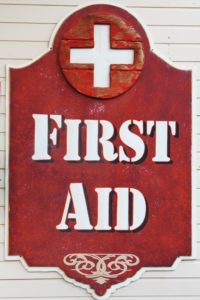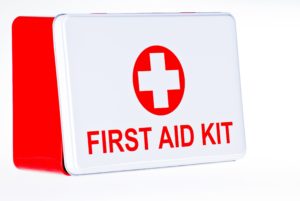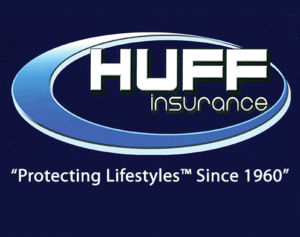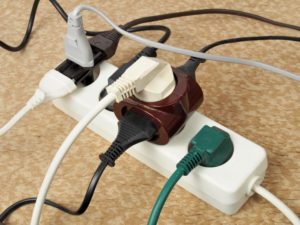First Aid Tips
 First Aid training is probably is one of two types of instructions an employer provides that everyone in the workplace hopes never to nee, with the other being a fire drill. However, when an injury or illness strikes, knowing how to effectively administer proper First Aid can be the deciding factor between a quick or a lengthy recovery, a temporary or permanent disability, and in some cases, life or death. That is why it is imperative to be familiar with common First Aid procedures. It is equally significant to learn the correct way to administer aid procedures so they are safe to perform.
First Aid training is probably is one of two types of instructions an employer provides that everyone in the workplace hopes never to nee, with the other being a fire drill. However, when an injury or illness strikes, knowing how to effectively administer proper First Aid can be the deciding factor between a quick or a lengthy recovery, a temporary or permanent disability, and in some cases, life or death. That is why it is imperative to be familiar with common First Aid procedures. It is equally significant to learn the correct way to administer aid procedures so they are safe to perform.
In an attempt to discredit some of the faulty notions that have developed concerning current First Aid treatment recommendations, the American Safety & Health Institute (ASHI) along with 25 other nationally recognized organizations joined together to form the 2005 National First Aid Science Advisory Board (NFASAB). The Board’s mission was to review and evaluate the existing scientific literature on First Aid to determine the most effective treatments for common workplace injuries. They reviewed data from the U.S. Centers for Disease Control and Prevention, Cochrane Reviews, which are evidence-based evaluations of the effects of health care treatments, the U.S. National Library of Medicine, and medical journals and textbooks.
As a result of the Board’s review and evaluation of this data, they recommend the following procedures:
- If an employee is bleeding, apply pressure firmly for an extended period of time, until either bleeding stops or paramedics arrive . Earlier guidelines also recommended elevating a bleeding limb above heart level and, if direct pressure was ineffective, pressing on specific arterial points. Actual evidence is insufficient to recommend for or against these practices and also the use of tourniquets .
- Thermal burns should be treated with cold water as soon as possible, but direct application of ice to a burn area can cause harm. Avoid cooling burns with ice or ice water for longer than 10 minutes, especially if the burn covers more than 20% of a person’s body.
- If an employee has a soft-tissue injury such as a sprain, strain, contusion or fracture, apply cold to the injury to decrease hemorrhage, edema, pain and disability. Cooling is best accomplished with a plastic bag or damp cloth filled with ice, which is more effective than re-freezable gel packs. To prevent injury, limit each application to periods of no more than 20 minutes and place a barrier, such as a thin towel, between the ice container and the skin .
- To prevent a minor wound from becoming infected, cleanse the wound with clean tap water until all foreign matter has been flushed. Apply triple-antibiotic ointment or cream only to a scratch or superficial wound. Previous methods recommended applying antibiotic to all wounds no matter how deep.
- Do not give water, milk or syrup of ipecac to someone who has ingested poison. Previous guidelines allowed use of these substances in certain cases after consultation with a poison control center, but they may be harmful and are not recommended now.
By keeping yourself and your employees up to date with basic First Aid care, as well as maintaining a well-stocked First Aid kit on-site, you can significantly reduce the chance of a severe trauma that could have been prevented by simple First Aid.
The Red Cross recommends that all first aid kits for a family of four include the following:

- 2 absorbent compress dressings (5 x 9 inches)
- 25 adhesive bandages (assorted sizes)
- 1 adhesive cloth tape (10 yards x 1 inch)
- 5 antibiotic ointment packets (approximately 1 gram)
- 5 antiseptic wipe packets
- 2 packets of aspirin (81 mg each)
- 1 blanket (space blanket)
- 1 breathing barrier (with one-way valve)
- 1 instant cold compress
- 2 pair of non-latex gloves (size: large)
- 2 hydro-cortisone ointment packets (approximately 1 gram each)
- Scissors
- 1 roller bandage (3 inches wide)
- 1 roller bandage (4 inches wide)
- 5 sterile gauze pads (3 x 3 inches)
- 5 sterile gauze pads (4 x 4 inches)
- Oral thermometer (non-mercury/nonglass)
- 2 triangular bandages
- Tweezers
- First aid instruction booklet
Huff Insurance is a full service Independent Insurance Agent We have been dedicated to Protecting Lifestyles™ since 1960. We offer a full array of Personal Insurance, Commercial Insurance and Life Insurance & Health Insurance products. Call us at 410-647-111






 In the time it takes you to read this brief note, between 5 and 10 autos will crash because the driver was using a cell phone. Cell phones are the number one cause of distracted driving accidents in the US.
In the time it takes you to read this brief note, between 5 and 10 autos will crash because the driver was using a cell phone. Cell phones are the number one cause of distracted driving accidents in the US.